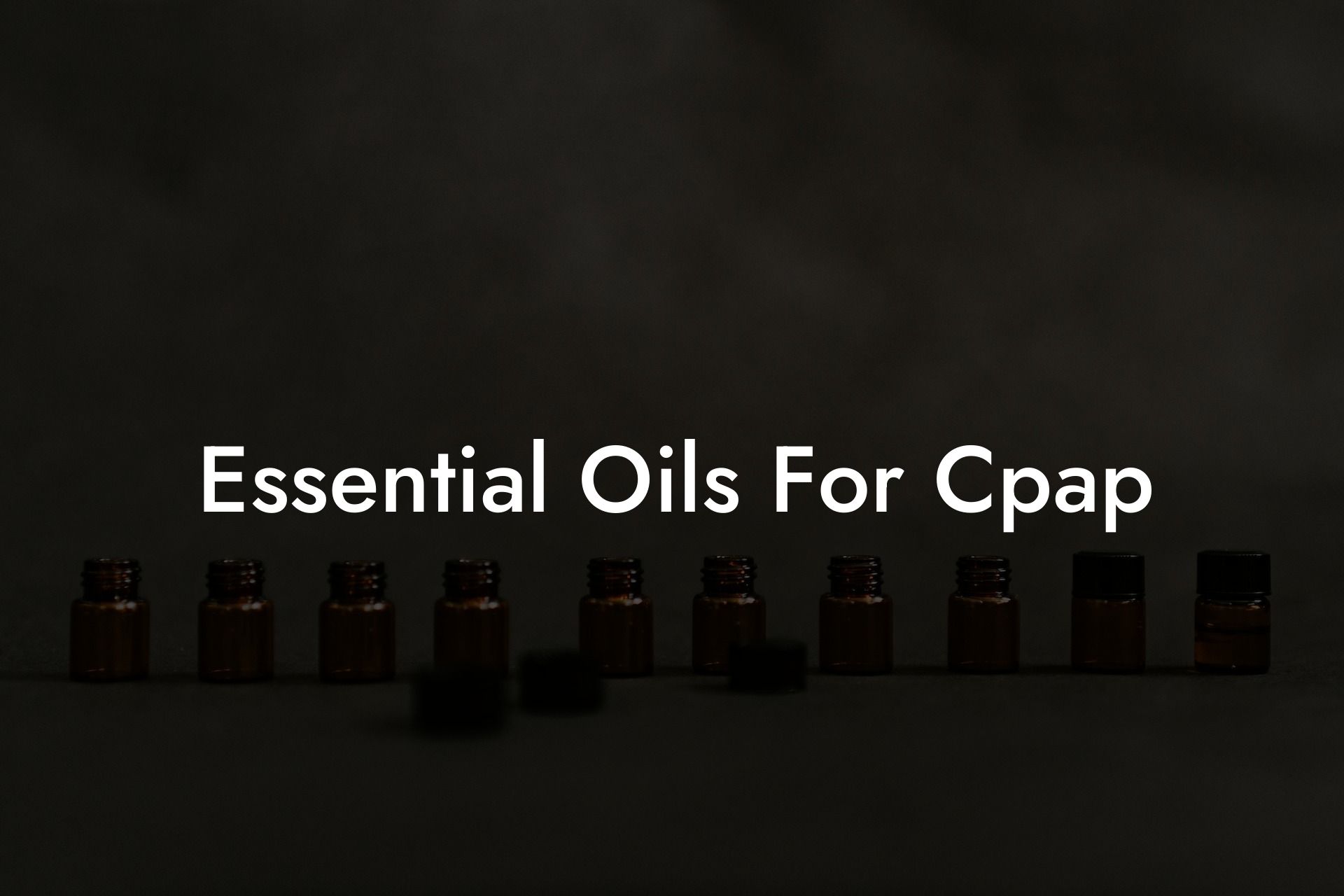Discover the benefits of incorporating essential oils into your CPAP therapy. Learn which oils can improve your sleep quality, alleviate congestion, and promote relaxation for a better night’s rest.
Table of Contents
What is CPAP Therapy?
Continuous Positive Airway Pressure (CPAP) therapy is a standard treatment for people suffering from sleep apnea. It involves using a machine that delivers a constant flow of air through a mask worn during sleep, keeping the airway open and allowing for uninterrupted breathing. As effective as CPAP therapy is, it can also come with some challenges, such as feelings of discomfort or dry air which can lead to congestion. Fortunately, a game changer has arrived in the form of essential oils for CPAP users.
Benefits of Essential Oils in CPAP Therapy
Integrating essential oils into your CPAP routine can provide numerous advantages, including:
- Improved sleep quality: Many essential oils are known for their calming and relaxing properties, helping you fall asleep faster and enjoy a more restful night.
- Alleviating congestion: Some oils possess decongestant qualities, which can help reduce nasal stuffiness and promote easier breathing.
- Enhanced relaxation: The soothing scents of essential oils can help reduce stress and anxiety, promoting better sleep and overall well-being.
Best Essential Oils for CPAP Users
When it comes to essential oils for CPAP therapy, not all oils are created equal. Some can be potentially harmful if used incorrectly. Here are some of the best options:
- Lavender: Lavender oil is renowned for its calming and relaxation properties. When used in CPAP therapy, it can help promote better sleep quality and reduce stress.
- Eucalyptus: Eucalyptus oil has powerful decongestant properties. It can help clear nasal passages and improve breathing during sleep, making it a great addition to CPAP sessions, especially during cold or allergy seasons.
- Chamomile: Known for its soothing effects, chamomile oil can help improve sleep quality and promote relaxation when used in conjunction with CPAP therapy.
- Peppermint: Peppermint oil is another excellent choice for decongestion and improving breathing. Its refreshing scent can also help invigorate and energize, assisting in a more restful night’s sleep.
How to Use Essential Oils in CPAP Therapy
It’s essential to use oils safely and correctly in CPAP therapy. Never add oils directly to your CPAP device, as it can cause damage or irritation. Instead, use an aromatherapy diffuser designed for use with CPAP machines or place a few drops on a cotton ball near the air intake of your device. This method allows the scent to disperse throughout the room without harming the machine or direct contact with your airways.
Essential Oils For Cpap Example:
Imagine your bedtime routine as a CPAP user. You get ready for bed, set up your CPAP machine, and place a few drops of lavender oil on a cotton ball. As you drift off to sleep, the gentle aroma of lavender relaxes and soothes your senses, helping you fall asleep faster and sleep more soundly throughout the night.
On another evening, you’re feeling a bit congested – your allergies acting up. This time, you opt for eucalyptus oil on a cotton ball near your CPAP machine’s air intake. As you rest, the refreshing scent of eucalyptus helps open up your nasal passages and alleviate your congestion, allowing for a more comfortable and healthier night’s sleep.
Incorporating essential oils into your CPAP therapy routine can greatly enhance your sleep quality and overall well-being. Give it a try and experience the difference yourself. If you found this article helpful, please feel free to share it with others who might benefit from essential oils as part of their CPAP therapy. Additionally, be sure to explore Oshu Oils’ range of high-quality essential oils and check out our other informative guides on essential oils and aromacology to ensure you make the most of these natural wonders.





















